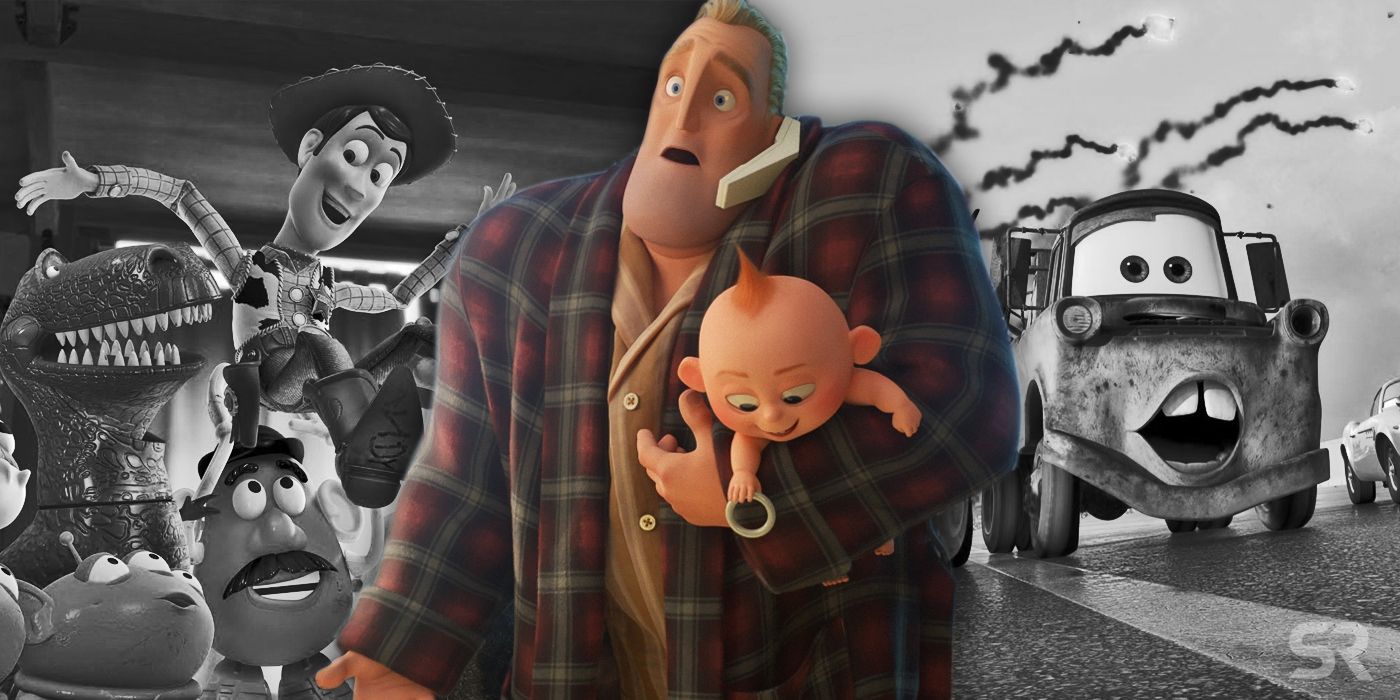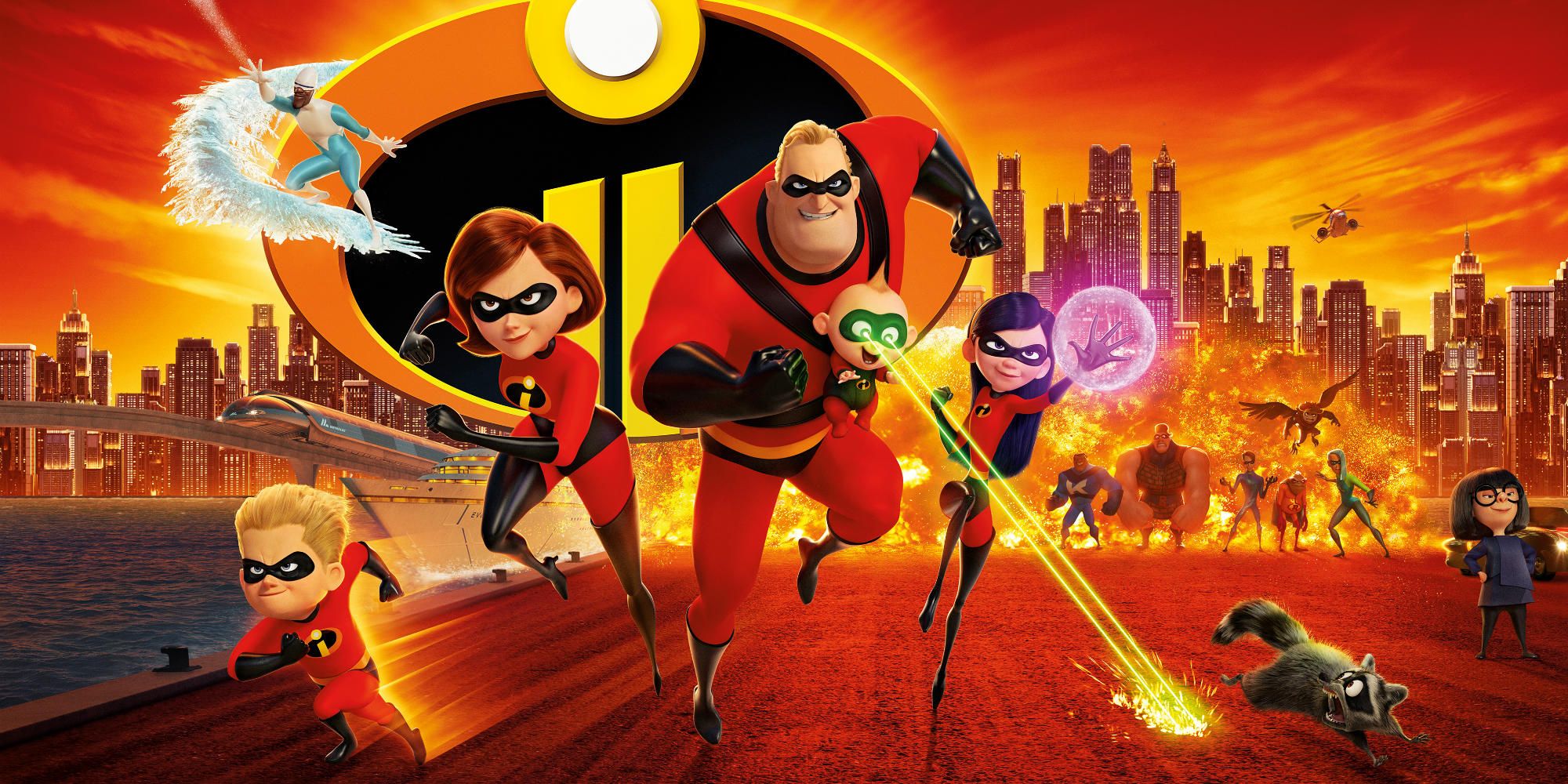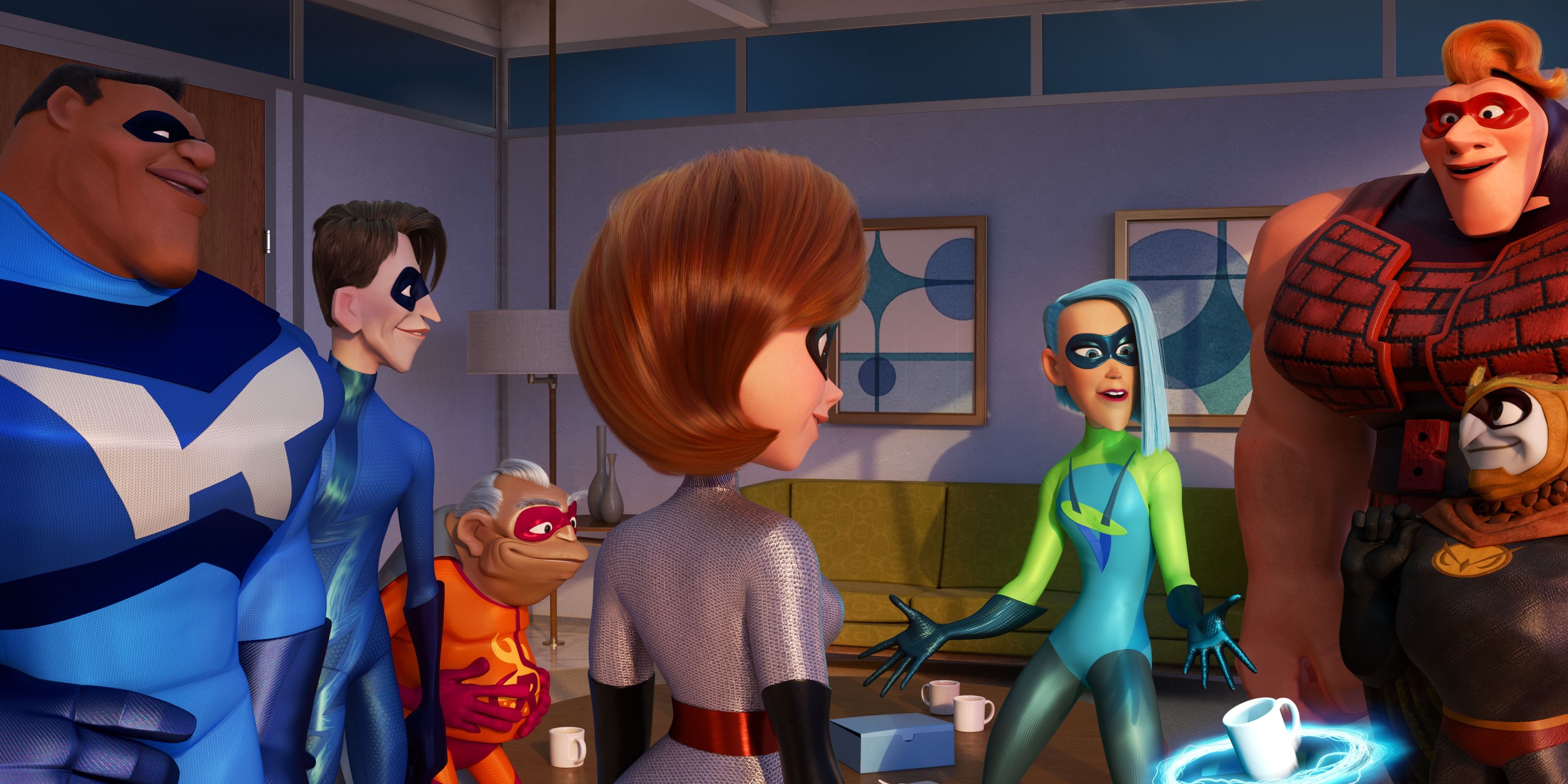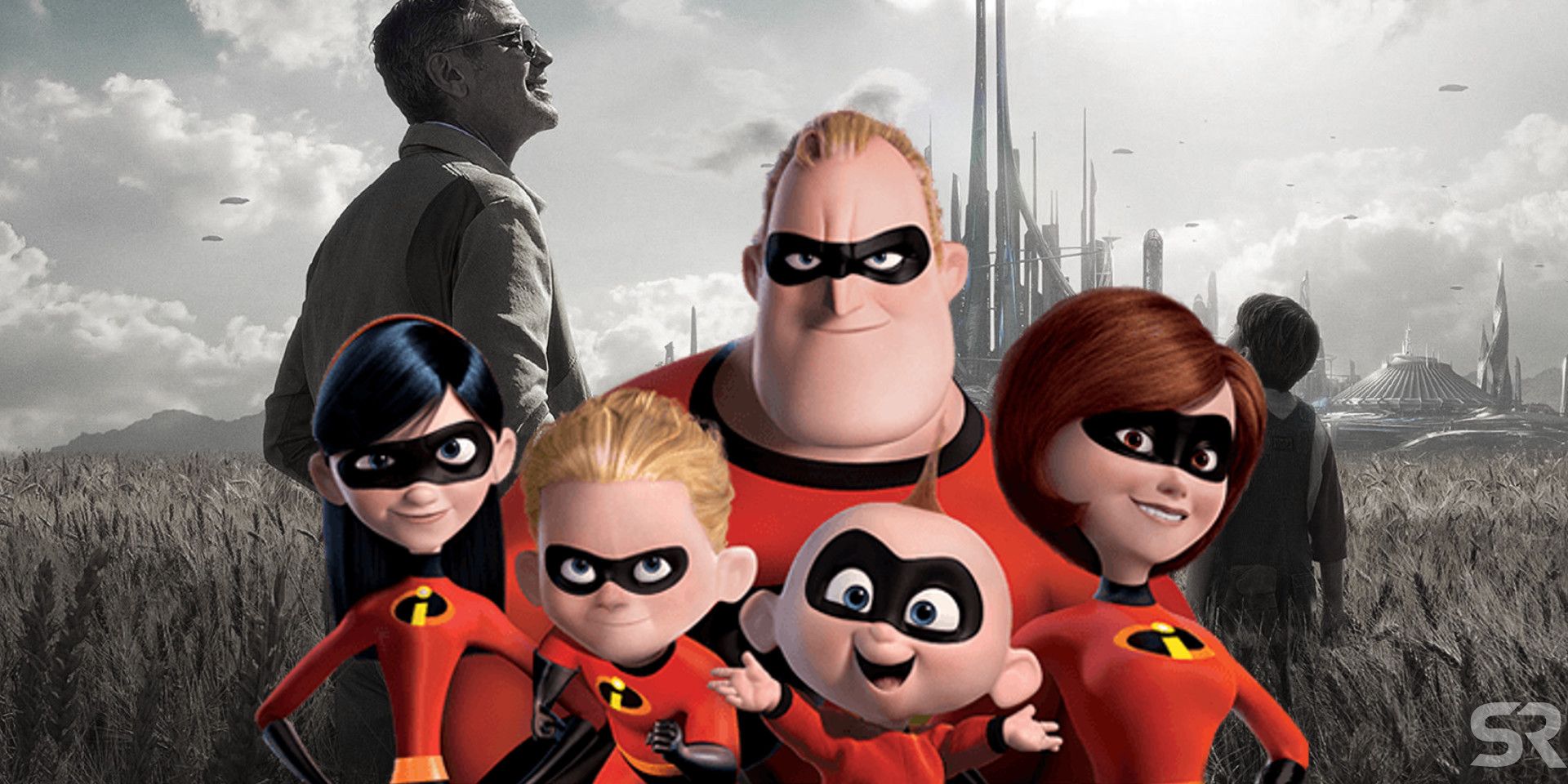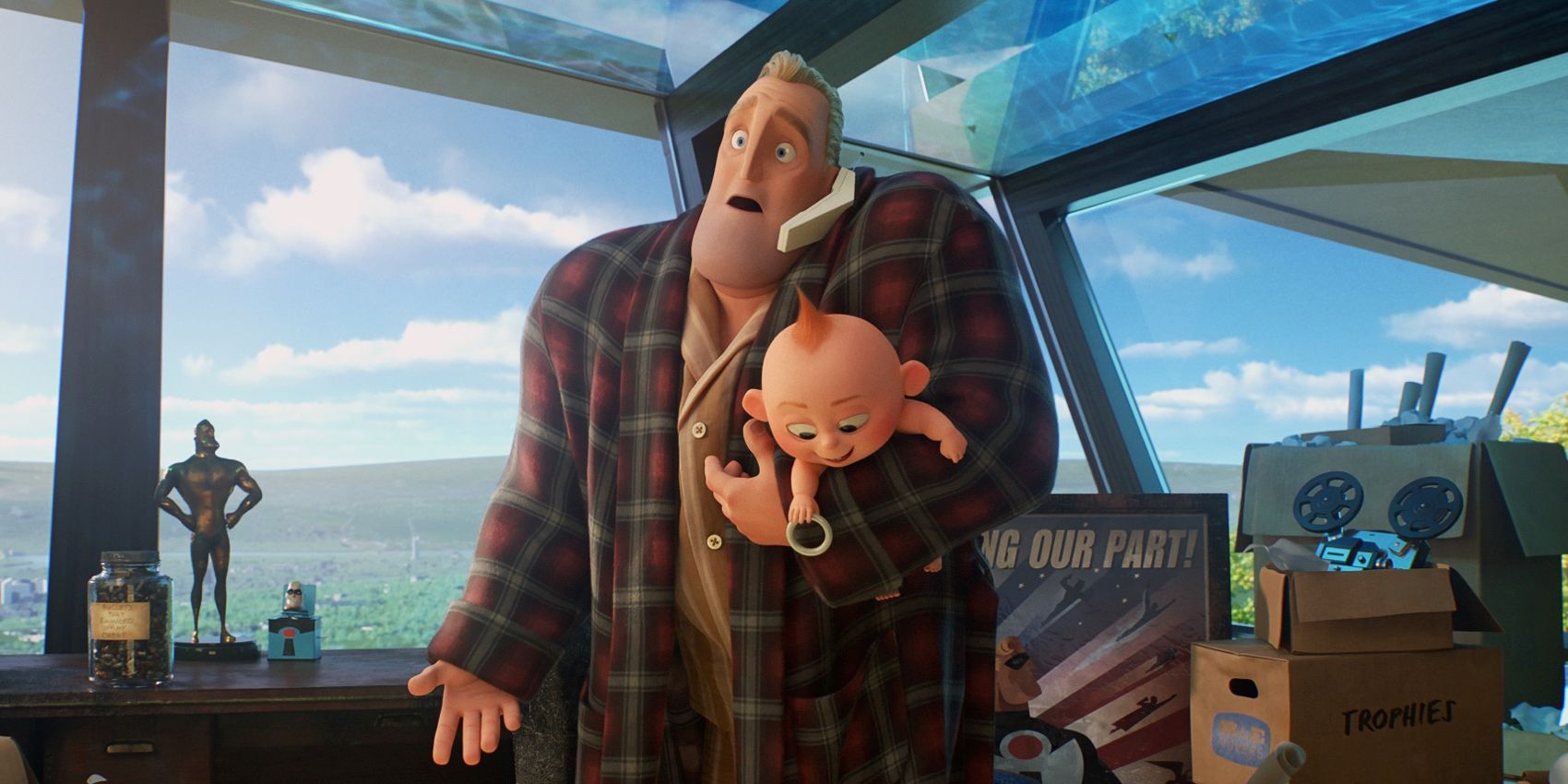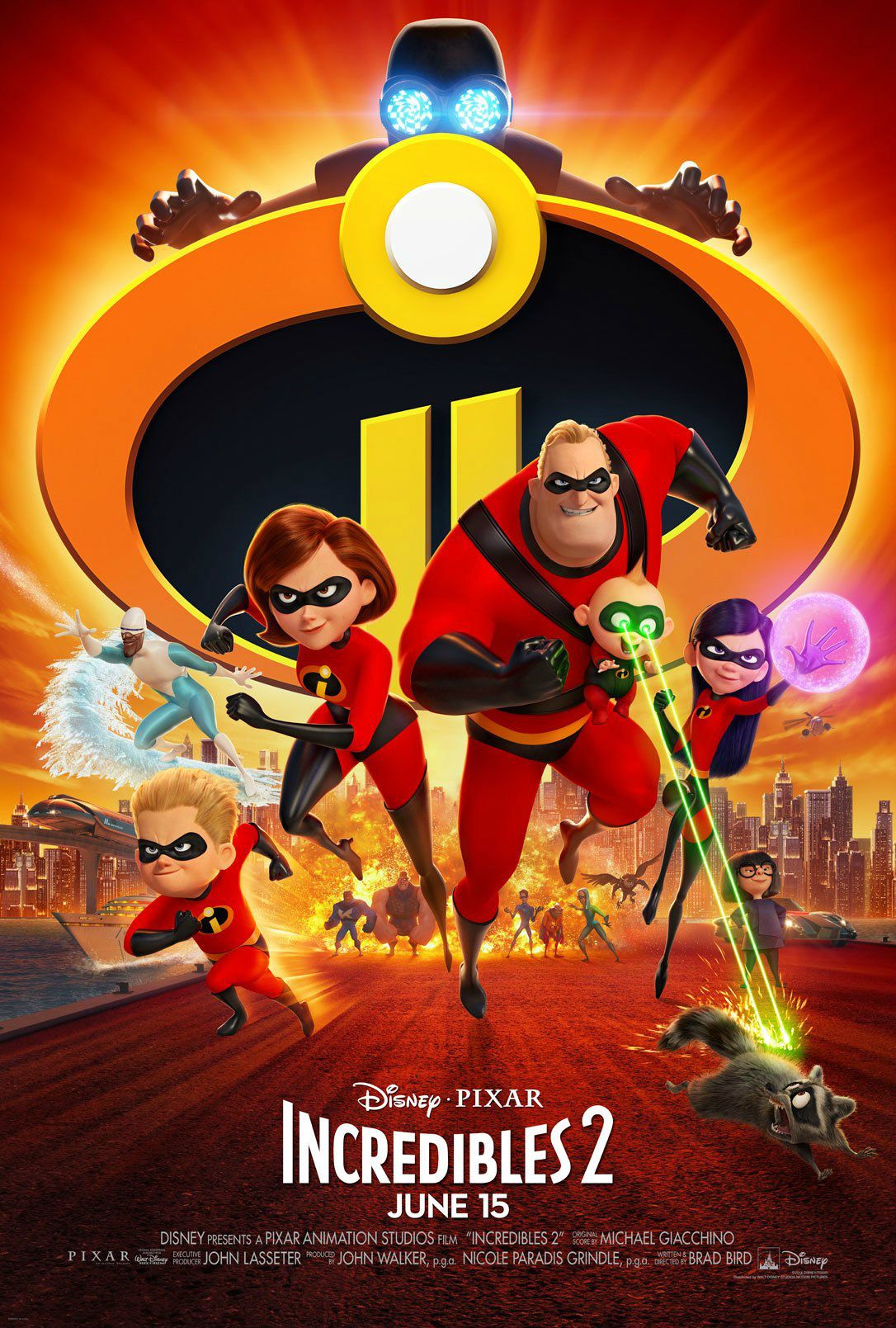Disney's Incredibles 2 is nowhere near as good a film as the original and nowhere near being in consideration for Pixar's best sequel (which is still almost certainly Toy Story 2 all these years later), but it's also far from the least of the studio's recent output and yards above the likes of Cars 2 (or, for that matter, Planes) when it comes to the impressively small roster of "bad Pixar sequels." And yet, given the unique pedigree that Brad Bird's auteur superhero saga holds within the storied studio, that Incredibles 2 arrives (perhaps inevitably) as a bit of a letdown means that the film is saddled with a dubious distinction no one would have wished for it: the most disappointing Pixar sequel ever.
That's not to say Incredibles 2 is anything like a bad film - or, rather, that it's been received as such. Reviews have been largely positive (though few, crucially, are suggesting that it equals or surpasses its predecessor) and even rare detractors will enthusiastically concede that it features peerless animation, a rollicking score from Michael Giacchino, the welcome return of the first film's early-1960s retro-futurist design aesthetic and a handful of individual action scenes (an opening-act battle and a shockingly brutal closed-quarters fight between Elastigirl and new villain The Screen Slaver in particular) so impressively staged as to re-justify the reverence of animation buffs for writer/director Brad Bird all on their own. And to be sure, nostalgic fans whose main interest is seeing a new adventure featuring Mr. Incredible, Elastigirl and their family the film more or less delivers on that.
Related: Read Our Incredibles 2 Review
One can also credit the film for the (at least theoretically) bold decision to invert the gender/screen-time divide both from the broader superhero genre and its own predecessor, as the storyline this time around (the Parrs are approached by brother/sister team of telecom billionaires who want to throw a press-managed, big-money publicity campaign behind costumed vigilantes in order to push for an end to the laws that made superheroes illegal decades ago) has Elastigirl at the forefront of the action/crimefighting/villain-mystery-investigating scenario (she's apparently less of an insurance liability) while Mr. Incredible takes over at home for comically-inept stay-at-home-dad sitcom-shenanigans. There is, indeed, a lot to recommend - so why does it end up feeling like so much less than the sum of its parts?
- This Page: Why Incredibles 2 Fails To Match The Original
- Page 2: Why Incredibles 2 Was Always Going To Disappoint
Comparing Incredibles 2 To The Incredibles
Could the original Incredibles have ever been "lived up to?" Maybe not. It was a film so good it even stood out at the peak of the pre-Cars point where Pixar was possibly the most beloved American moviemaking brand in Western filmmaking: a peppy send-up of the superhero genre (at a long-ago-seeming point when a "Disney Superhero Movie" sounded like a quirky stab at new trends rather than a preview of the future of the global entertainment culture) that also used said genre's context to explore big questions about individualism, society, freedom and responsibility through a relatively simple, straightforward storyline. In a world where it's illegal for Supers to use their powers for crimefighting, ex-hero Mr. Incredible uncovers a scheme by a disgruntled former-fanboy to eliminate the last of them and unleash a super-scale disaster so he can look like a superhero himself by thwarting it. There are subplots and extra beats, to be sure - mostly centered on the rest of the family and their relationships - but it all ties back to the central themes of reconciling the joy (and also burden) of being a gifted individual with one's responsibility for (but also apprehension-from) everyone else.
Incredibles 2 is... a bit more all over the map, even as it initially seems to follow the same setup with the Mom/Dad roles inverted Instead of Bob Parr (aka Mr. Incredible) sneaking off to unwittingly participate in what turns out to be Syndrome's villain schemes to work out his crushing emasculation anxiety (if he can't be a superhero, what is he?) while Helen/Elastigirl deals with their kids lashing out in super-scale versions of youthful angst exacerbated by the repression of their super-powered nature, Incredibles 2 has Helen hunting a supervillain while also ostensibly being livestreamed as part of a pro-Super social-media activism campaign while Bob deals with more of the same from the kids at home.
But this time, both stories come with extra complications and side-stories that don't really tie-in thematically to the main arc and instead end up feeling like a several handfuls of planning-stage "sequel ideas" notes that stayed in the final product for lack of any other connective tissue. In other words, the kind of problems one expects from obligatory cash-grab sequels greenlit immediately after a big hit - but not from 15 years later revivals many figured would never actually get made.
Related: Incredibles 2's Original Release Date Would Have Been Pixar's Best Easter Egg
Incredibles 2's Story Doesn't Have Anything To Say
Many fans had been expecting the sequel to chiefly explore the emergence of baby Jack-Jack's powers (revealed to the audience at the end of the first film and a babysitter in a DVD-exclusive short but not to the family), a logical conclusion given how much of the original dealt with the difficulty of remaining in hiding and the obvious stakes raised by an infant with powers he can't control. Instead, the thread becomes a slapstick side-story that doesn't end up having much effect on the actual narrative or fit into the wide theme (which, incidentally, ends up being another too-clever-by-half inversion of the first film and thus a bit too easy to figure out). His main contribution is as an excuse for Edna Mode's cameo to happen, which is (as expected) quite funny but also lacking the sly undercurrent of gravitas her scenes had in the original; where she was not simply a comic-relief plot device but the in-universe voice of the film's view of the Supers' plight as an allegory for the societal-subjugation of artists, scientists and other gifted persons.
Still more subplots crop up and, even more frustratingly, simply fail to go anywhere: The "Mr. Mom" arc means Bob gets to go through the same "am I still a man if I'm not the Man??" emasculation-anxiety arc again as though his experience with Syndrome mere weeks ago taught him nothing. Also re-doing the same arc is Violet, as a plot-contrivance causes her to re-experience her school-shyness and love/hate relationship with powers all over again. Actual new material (more teases about Elastigirl's pre-married heroine career, the retirement of the family's government caseworker, a team of newly-"out" Supers backing up Helen's campaign) crops up but doesn't really go anywhere or tie in with the aforementioned main story; which also doesn't really build to any kind of bigger thematic point apart from a fairly basic message about family and sticking together that feels perfunctory and disconnected to the performative continuation of the first film's genre-deconstruction.
But perhaps most difficult to ignore is how much the story, characters and entire dramatic sweep of the finished product feels like so much jogging in place, however colorful and intermittently-entertaining. It's one thing to retread the same beats as the first film but with "new" angles, but another thing entirely for the film to hurtle into its big Act 3 action climax and realize that effectively nothing - not the characters, not the world around them, not the overarching metanarrative, none of it - has actually progressed at all from where we left them last time and that none of they/it ultimately do until the final moments of this one. The eventual reveal of the "surprise" villain's motivation feels very much like Bird openly antagonizing those who criticized the first film for (in their view) pushing a kiddie-friendly version of quasi-Objectivist Great Man Theory romanticism. But that's not really a theme so much as just "clapping back."
Where the original film felt like a bar-raising game-changer for Pixar, for feature animation and for the entire superhero genre animated or otherwise, its sequel feels more like a perfunctory episodic check-in ("this week on The Incredibles...") where nothing particularly notable or important occurs in the story. That would be a let down had it arrived only a year or two after the original, as a typical sequel in the genre does these days. But to land in theaters with so little to say and while also being so lacking in dramatic (or emotional) gravity after keeping an entire generation of fans waiting (for some) half a lifetime or more? That's how you deliver a super-sized (sorry) disappointment even if you avoided making an outright bad film.
Page 2 of 2: Why Incredibles 2 Was Always Going To Disappoint
Did The Delay Hurt Incredibles 2?
It's entirely possible, as previously noted, that the first Incredibles couldn't be equaled by any follow-up - hence why Brad Bird himself spent the better part of a decade being casually disinterested in rushing out a sequel even as it became a running joke that Incredibles 2 was not just the only sequel Pixar had "promised" (as part of its checklist of superhero cliche's to be parodied, the first film ends on a gratuitous "to be continued" tease involving a new villain's sudden appearance) but also the only one many fans really wanted. It was inevitable that whatever story was told it wasn't going to be to every fan's liking or what even those who ended up enjoying it had necessarily wanted to see - especially when one remembers that in the intervening decade and a half of waiting the superhero genre has become the dominant blockbuster entertainment force in global cinema. As a certain misguided fan once put it, "When everyone is super, no one will be."
Much as one would endeavor to ignore the specter of movie-industry gossip-mongering, it's hard to ignore the context under which the film finally arrived: after picking his projects carefully despite banking eyebrow-raising industry clout with The Incredibles, the retroactive-respect of his debut masterpiece The Iron Giant, Ratatouille and even Mission: Impossible - Ghost Protocol film (director only), Brad Bird had teamed with fellow Hollywood "it guy" iconoclast Damon Lindelof for an expensive live-action Disney sci-fi/drama Tomorrowland. But the film - an ambitious treatise on Bird's personal fascinations with individualism and utopian techno-evangelism that drew comparisons to Bioshock - ended up a box-office dud that perplexed audiences and was excoriated by critics. Is it possible that Incredibles 2's messy structure and ultimately weightless narrative can be simply chalked up to being a work of obligation, undertaken by creators (and a studio) that could use a surefire box-office hit whether they had a strong passion to make it or not? The filmmakers have repeatedly affirmed that this is not the case, and there's little reason to doubt them - save that the film feels like that's precisely what could've occurred.
Read More: The Accidental Road To Incredibles 2 (By Way Of Tomorrowland)
Could Incredibles 2 Have Ever Been Great?
But it's also worth asking, if one is considering what went wrong with Incredibles 2, whether it was ever possible for a sequel to this specific Pixar classic to actually go "right". Not everything is built to be a franchise, and the universe of The Incredibles indeed feels grounded more in matching familiar references to superhero/comics ephemera to the allegorical points the story was making than any kind of functional long-term continuity. The world of the original film is fairly small in scope, centered on a handful of characters and only gesturing at implications of a wider world mainly suggested by how similar the less fleshed-out parts are to other, more familiar superhero tropes. How did the ban work globally? Do all the Supers have powers or are any of them like Batman? Where do their powers come from and why are they all (seemingly at random) different? All the similarly super-powered villains went where, exactly? Those are questions demanded of a film that's looking to set up a franchise like Disney's own Marvel Cinematic Universe, but The Incredibles could largely ignore them because its characters and plot-points weren't created in service of worldbuilding - they were created to act-out an allegory for societal-resentment of exceptionalism.
In effect, because the in-universe narrative of The Incredibles is of secondary importance to that allegorical narrative (and the adjacent arcs of the main characters) a sequel can't really go anywhere meaningful. The only "big" follow-up story to tell is the end of the superhero-ban, which in itself isn't as much a narrative goal as it is the plot-device that lets the allegory play out in the first place. This isn't like Captain America: Civil War, where the same basic "what if the government made superheroes illegal?" storyline plays out as a table-flipping interrupting in the flow of a grander superhero omni-narrative - the Super ban (and more importantly how Mr. Incredible is strained, broken and then rebuilds himself under it) is the entire story, and when the characters have found equilibrium in their own internal struggles (Bob: be less selfish, Helen: be less self-denying, Dash: use your gifts, but for good, Violet: embrace your uniqueness) and solidified as a family, that's it.
The villain is defeated, there's a cheering crowd, when re-joined in their civilian identities the heroes are now much more well-adjusted and ready to face a new threat - whether or not the ban is lifted or really any question of "what comes next?" is largely immaterial, as clearing out plot-points was never the goal in the first place. So yes, Incredibles 2 is a letdown of a movie - it's awkwardly-structured, its story is half-baked and mostly repeats its predecessor, the characters don't experience meaningful development and it lacks either a bigger point or deeper theme. It would rank, even without the added weight of 15 years of expectations, on the lower-end of Pixar fare on those merits alone.
But before fans judge this Incredibles 2 "failure" to deliver too harshly, all involved would do well to take a moment and ask whether seeing 2004's lightning strike again - but this time with the weight of expectation - in 2018 was ever going to be a fair standard for any sequel... super or not.

